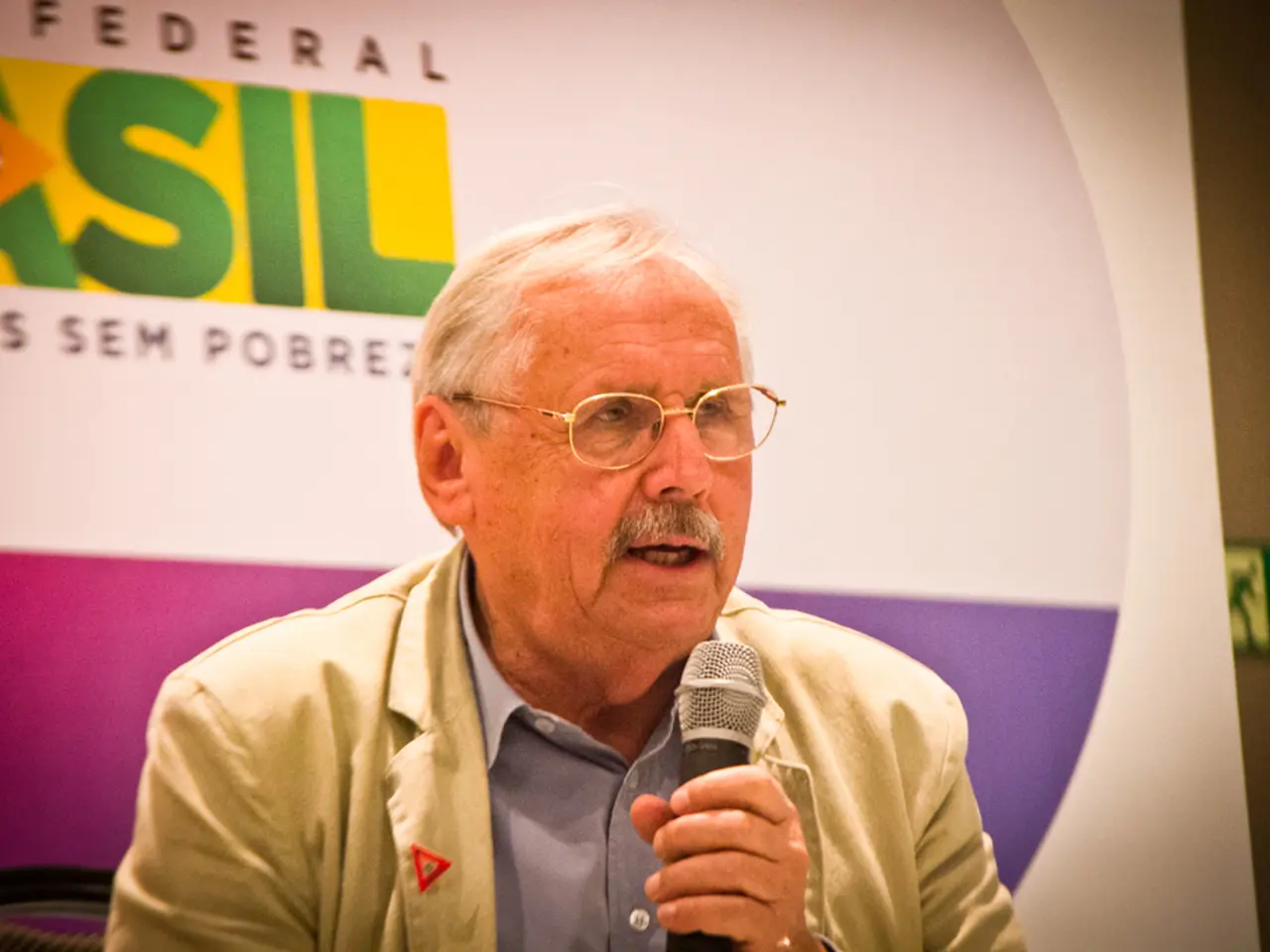Corruption and Disarray in the Body Politic: An Exploration of Democracy's Dark Side
In a revealing interview published in JF issue 34/25, retired jurist Josef Schüsslburner offers a critical perspective on the concept of "defensive democracy" (wehrhafte Demokratie) in the Federal Republic of Germany.
Schüsslburner, who has faced significant gaps between his duties and treatment by superiors in the federal service, scrutinizes how this legal and political framework, designed to protect the democratic order from extremist threats, can paradoxically pose challenges to democratic principles itself.
Schüsslburner's critique centers on several key points:
- Tension Between Protection and Restriction: He argues that while defensive democracy seeks to safeguard the system against anti-democratic forces, its mechanisms—such as banning parties or limiting certain freedoms—risk undermining the very democratic freedoms they aim to protect. This creates a delicate balance that may lean too far towards authoritarian restrictions.
- Risk of Overreach and Abuse: Schüsslburner warns that measures intended for defense can be stretched or misused, potentially curbing legitimate political dissent and stifling pluralism. The judiciary and political institutions might over-empower themselves in the name of defense, threatening civil liberties.
- Ambiguity of Legal Standards: He highlights ambiguities and subjective criteria in identifying what constitutes a threat to democracy, which can lead to inconsistent or politically motivated application of defensive democracy policies.
- Democratic Self-Reflection Needed: Schüsslburner emphasizes the need for continual democratic self-reflection and careful legal safeguards to ensure that defensive democracy does not become a tool for excessive exclusion or repression.
Throughout his career, Schüsslburner has faced discrimination and adversity. Publications, lectures, and legal opinions written by him were used as reasons for later discrimination. Numerous articles written by Schüsslburner, even for this newspaper, led to disapproval from superiors. Despite not experiencing the extreme intimidation of civil servants who belong to the "wrong" party, he critiques such practices.
Schüsslburner's career also included application rejections, grueling procedures, and a reworded farewell certificate, all of which were politically motivated. He critiques the interpretation of fundamental rights as an expression of a value order and the expansion of powers of the domestic intelligence agency beyond its original scope.
In an extensive conversation with former Deutschlandfunk journalist Bernd Kallina, Schüsslburner recounts his experiences at various points in the ministerial bureaucracy. The interview volume written by Schüsslburner sheds light on his life path as an exceptional "legal dissident".
The interview volume not only illuminates Schüsslburner's life path but also explores the background of democracy, law, and constitution. Schüsslburner critiques the possibility of party bans, ranging from the radical decree in the early 1970s to recent intimidation of civil servants. He critiques the expansion of powers of the domestic intelligence agency beyond its original scope and the "civil-religiously secured special path of democracy" in the Federal Republic.
One noteworthy instance of discrimination against Schüsslburner was instigated by a parliamentary question from the PDS/Left Party. Schüsslburner's originally high assessment led to his temporary assignments to international organizations like the EU Commission in Brussels and the United Nations in New York.
In summary, Josef Schüsslburner critically views defensive democracy in Germany as a necessary but problematic framework that requires cautious application to avoid paradoxically harming democratic values while defending them.
- Schüsslburner's critical perspective on defensive democracy in Germany extends to various aspects of society, including education-and-self-development, as he doubts the regulations may stifle intellectual and personal growth under the guise of protecting democratic principles.
- In his interview, Schüsslburner offers insights into the challenges of career-development within political institutions, with his own experiences of discrimination highlighting the potential for politics to interfere unfairly with professional progression.
- Schüsslburner's interview sheds light on the need for policy-and-legislation reforms to clarify and strengthen democratic values, emphasizing the importance of job-search processes and general-news outlets in fostering a more informed and vocal public to push for such changes.




